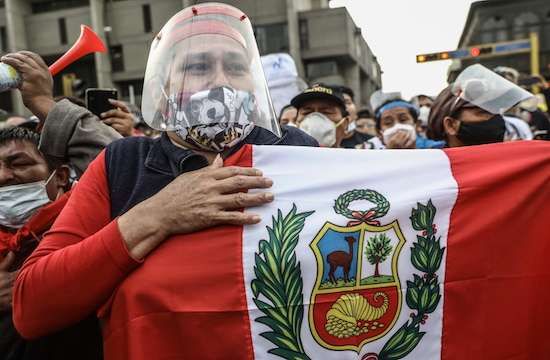Every time the El Niño Phenomenon punishes Peru, overflows occur that wipe out homes that had already been destroyed by previous floods. They should never have been in a risk zone, much less get up in the same place again. But that is where they are erected again, in the very course of the next disaster.
The presidential elections make a similar tribute to Sisyphus , which every five years draw a majority of Peruvians to vote in the second round, not with the conviction or enthusiasm of the sympathizer, but with the anguish and helplessness of the victim. As with devastated homes, no one can randomly blame the catastrophe, even if it always reappears as a curse: again neck-deep mud and again the insane ritual of having to hand over the vote to an option that would never have been considered. support of not facing another that is perceived as an even greater threat.
We have to be doing something very bad to democracy so that over and over again it subjects us to the torment of such tight cognitive dissonance. There are no democratic values or principles that can emerge unscathed from these contortions.
It is not easy to observe Verónika Mendoza shelving the fight for gender equality to support Pedro Castillo —and the party of misogynistic leaderships with which she herself earlier refused to ally herself—; nor to Mario Vargas Llosa raise the flag of freedom with which he confronted Fujimori for three decades to now wave it around Keiko Fujimori.
But it is even more difficult to verify that between all of us we have built this horrifying dilemma: two threats to democracy contesting the title of lesser evil as the highest national aspiration; and two halves of the country fanatically chanting the word Peru with radically opposite visions behind it.
It must be understood at once: the problem is not that the river experiences floods, but rather that we insist on the folly of taking the political confrontation to the very edge of its unstable channel. Instead of irresponsibly continuing to portray the adversary as a fearsome enemy of the country, one must know how to recognize the legitimacy of their demands and aspirations.
Those who claim for a bicentennial of postponements are not mistaken. Neither do those who aspire to stability and growth of the economy. But we are all wrong if we continue to believe that the aspiration of some can only be achieved by crushing that of the others.
It is not a problem that affects only Peruvians, of course. The acute polarization in Bolivia and Ecuador, like the outbreaks in Colombia and Chile, speak of a region traversed by similar tensions. It has not been the rise in subway fares, the fuel tax, the tax reform, or the pandemic itself that really explains the magnitude of the protests and the fury of their shock wave. It is, under the scabs of corruption, impunity and state inefficiency, the unsustainable coexistence of islands of privilege in a sea of precarious rights.
Yes, it is inequality: the distinctive scar of Latin America, our “brand-region”. But it is not herself. It is the fact that even so many in our territories remain below that minimum that the Chilean revolt has signaled with the accurate dart of the word dignity. And it is important, and very telling, that this happened in Chile, whose performance in recent decades has shown positive and even enviable results; but, in light of such widespread malaise, unbearably insufficient.
The route that we have been traveling in different countries is dangerously tilting compatriots against compatriots and turning democracy into a maddened monster that devours itself. The growing commitment to extreme visions is sold as the easy way out of all these evils, but it is nothing more than a fallacious shortcut whose hidden price is all of us.
There is a recent gesture, however, that suggests the possibility — and the need — for another path. The meeting of the once faced fists of Cardoso and Lula, as a sign that it is not easy but it is essential to approach from shores that, although opposite, recognize the urgency to overcome differences and listen to the majority without having to sacrifice in the I process the principles and values of our today threatened democracy. That must be our bet.


